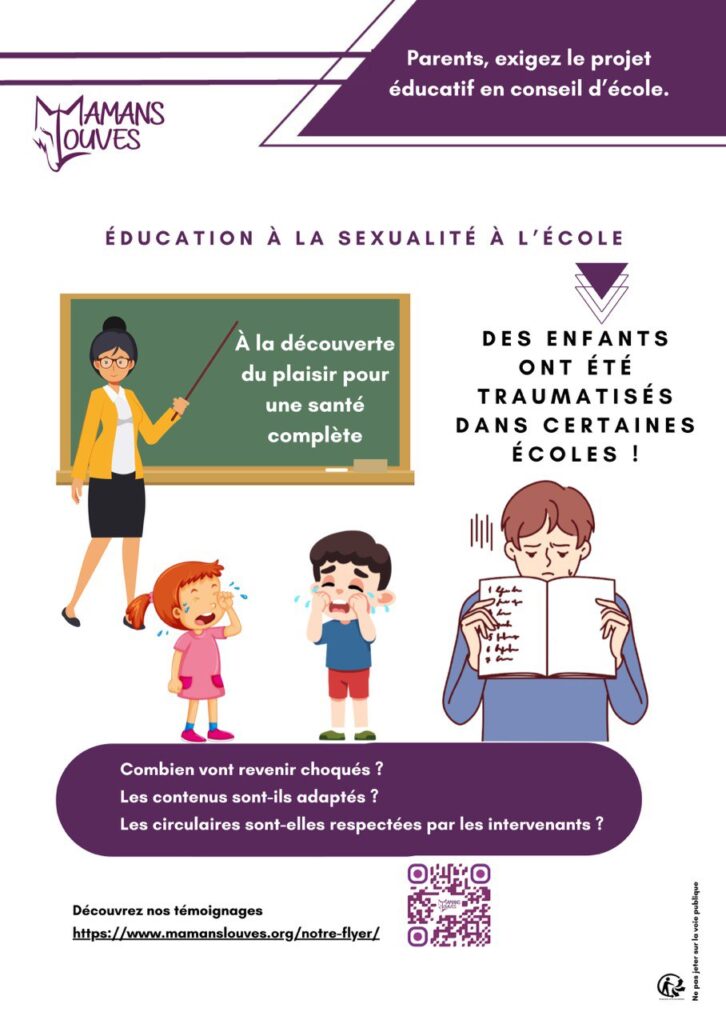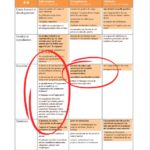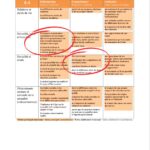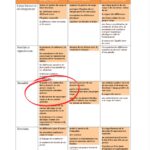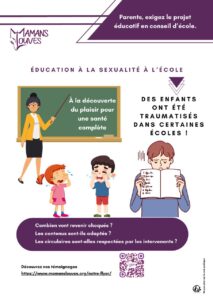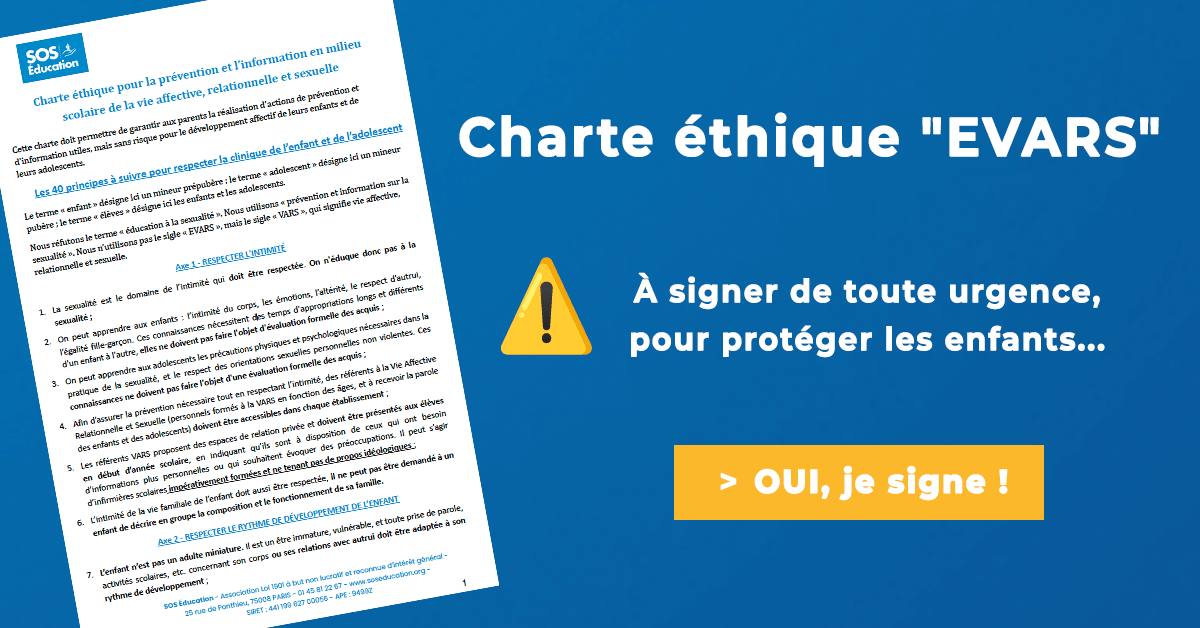Background :
Sexuality education in schools is a legal obligation laid down by the law of July 4, 2001, and described as a priority by the former Minister of National Education, Mr Pap Ndiaye. Prior to his departure, he submitted a request to the Conseil Supérieur des Programmes, with the aim of integrating this “education” like other teaching subjects.
While such education may be of interest to children in the context of preventing and combating sexual violence, as well as combating discrimination (if it is carried out using media that are in line with the child’s capacities and development), it also poses a significant risk to respect for their best interests.
Testimonials :
We receive more and more testimonials of parents whose children have been traumatized by attending sexuality education classes in schools, and we would therefore like to alert parents, parents’ representatives (RPE) and educational teams to the need for the utmost vigilance.
Read our letter here.
Childcare professionals warn:
Childhood and/or psychotrauma professionals, child psychiatrists, psychiatrists, psychologists, doctors, pediatricians, child psychoanalysts, psychotherapists, educators, social workers, nurses and teachers have been denouncing the dangerousness of this sexuality education since 2017, and explaining that children’s early encounter with adult or adult-conceived sexuality can be highly traumatic, going against respect for their emotional and cognitive rhythms, psychic growth and maturation.
The notion of legal sexual minority before the age of 15 is a recognition of this danger.
Here are some extracts from their explanations:
http://petitionpublique.fr/PeticaoVer.aspx?pi=P2017N49527
https://proscontreeducsex.wordpress.com
To build and organize themselves psychologically, children need the difference between generations to be clearly defined through prohibitions. But when an adult, even one in a position of authority, talks to a child about sexuality without any request on the child’s part,
the intrusion into the child’s psychic life has an incestuous tone: the adult mixes the child with his or her own thoughts about sex, and is therefore in the register of seduction rather than information.
Our society also has a duty to curb children’s sexual and aggressive impulses through education, not to allow and stimulate them through any form of education.
So, is the role of the state to promote excitement, to provide each individual with ever more claims to limitless “enjoyment”?
Is it the role of the state to interfere in the intimate sphere of families, children and adults, by dealing with private matters?
It’s hard to deny that questions of sexuality are a private matter, not only for adults but also for children.
Finally, the role of the State is not to hinder the construction of family identities, which children must be able to build on, while respecting the process of filiation and intergenerational transmission. Combating inequalities between men and women and the
The discrimination a person may suffer because of his or her sexual choices has nothing to do with gender theory, which asserts that our sexual identity is a social construct that needs to be deconstructed.
How is sexuality education organized?
2 circulars are available: 2018 and 2022.
The 2018 circular (known as the “Blanquer circular”) specifies:
● “(…)the French education system and all its staff act with the utmost respect for consciences, and are extremely vigilant to ensure that teaching is fully adapted to children’s ages.
● “This education is aimed at knowledge and respect for oneself, one’s body and others, with no strict sexual dimension in elementary school. It is completed, in adolescence, by an understanding of sexuality and sexual behavior that respects others and their bodies. Childhood and intimacy are fully respected.
● “private issues should not be dealt with in a collective setting”.
● “parents must be informed and/or involved in the implementation of these courses from the start of the school year, and that they must practice in a respectful manner without pre-empting the children’s questioning; however, parents are rarely given advance notice of when these interventions will take place.” Circular 2022
● “it will be necessary to be particularly vigilant to ensure that the subjects addressed during these sessions comply with the provisions of the 2018 circular* and are made explicit to families in order to avoid any misunderstanding of what this education in respect really is.
of self and others
● “An educational project will have to be presented to the school council for elementary schools and to the CESCE for middle schools and higher.”
These circulars may seem reassuring, but in reality they don’t prevent caregivers from undermining children’s development. (See our testimonials).
In addition, the European standards that form the frame of reference for our national health policy raise serious questions, and in fact run counter to the recommendations made in our circulars.
In fact, in the midst of perfectly laudable objectives such as combating sexual violence, an obvious change is taking place in France, unbeknownst to parents.
The notion of pleasure has become the central element to be taught from the earliest age, so that every citizen of tomorrow experiences “good sexual health”.
These sexuality education standards recommend, for example, teaching :
● from age 4: early childhood masturbation
● from age 6: sensations linked to sexuality (closeness, pleasure, excitement).
It’s a good idea to anticipate the children’s questions.
Prevention at school
At secondary school, pupils aged 11 and over receive brochures from the onsexprime.fr website, which is under the aegis of the French Ministry of Health, where they can find out all about sexual practices, a playful version of the Kamasutra.
Brochures or flyers distributed to students as early as 6th grade:
Is it to combat early access to pornography? Let’s be serious… We’re wondering about the evaluation of this content by child psychology professionals before its use in schools.
It is therefore imperative for parents to make the need to protect their children clear to schools.
